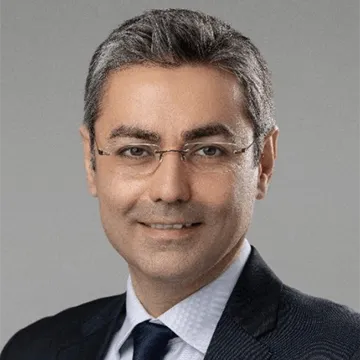Q&A: The MBA Experience

Farbod Farhadi, Associate Professor of Marketing, MBA Program Coordinator
FacultyAt RWU, it's not just about getting an MBA degree, it's about becoming a leader in business. The experience in RWU’s accelerated Master of Business Administration program provides this for students. It's what sets RWU apart.
Do you have questions on the fully AACSB International accredited program and the experiences students have? We have answers!
One of the distinct features of RWU’s MBA program is its cohort model. Can you explain some of the thinking behind it?
We wanted to provide an experience where everyone takes almost all the same classes together throughout the program. There is a lot of networking that happens in an MBA program. Because our students have almost every class together, it’s a great bonding experience where they build good relationships and will likely stay in touch. They will be peers and colleagues throughout their professional careers. Students don’t really realize it now, but in 10 or 20 years they may be looking for a position at a company where one of their MBA class members is working. We also are working on external networking events where students will have the opportunity to network with members of the business community.
Our in-person focus is part of what sets this program apart from what so many other institutions have gone to – which is more online classes. Here, I’ll show up ten minutes before class and all the students are working together. It’s just what I want. Here, we are a small community. Our students work together. When they are working for a corporation it’s a lot of teamwork – a lot of solving problems together as a group. Our students are already doing that.
What kind of projects do students work on?
We are trying to create real-life situations that they are going to experience in their careers. For example, I teach the decision and marketing management course. I have students read through Harvard Business Review cases and analyze the problems and opportunities they see, and then present the results. The final case is a team case. It is set up like two companies trying to go after a single account. Each group presents what they think is the best solution for a company and then go back and forth why their solution is better than their competitors.
What kind of experiences do students in the program have outside RWU?
We wanted students to have both international experience and more local experience through an internship. Over the summer, one of our students completed an internship at an aviation company in New York City. Another student, who did a summer internship, has already been offered a full-time position at the company.
For our International Experience component, we’re going down to Panama in March. We have five company visits scheduled down there where the students will learn about the best practices of successful international companies. We’re going to the Panama Canal to talk about world trade, supply chain topics, and all of the implications students are going to live and breathe when they are part of today’s global workforce.
I think both the internship and the international experience will be some of the things students talk about during their interviews – among other experiences from our program. I think part of our responsibility is not just to make sure students get a master’s degree, but that we set them up with experiences to be professionals. I am confident our program does that.
Here, I’ll show up ten minutes before class and all the students are working together. It’s just what I want. Here, we are a small community.

